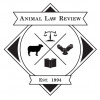Volume 16, Issue 2 (Spring 2010)
INTRODUCTION
INCORPORATING ANIMAL LAW INTO PRIVATE PRACTICE
Holly Anne Gibbons
ARTICLES
Claudia E. Haupt
In 2002, an animal protection clause was added to Article 20a of the German Constitution. Designed as a state objective, the nature of the animal protection clause decidedly influences its application. As a state objective, it is directed at all three branches of government, and each branch must ensure within its sphere of competence the realization of the stated goal. The Federal Constitutional Court has yet to address the precise scope of the provision.
This Article examines the likely future effects of the animal protection clause. With respect to the legislative branch, this Article addresses the question of whether the state objective demands that a standing provision be created for animal protection groups. With respect to the judicial and executive branches, this Article focuses on three fundamental rights that are most likely to come into conflict with animal protection: freedom of religion; freedom of teaching, science, and research; and freedom of artistic expression.
Seismic shifts in constitutional adjudication are not likely to be expected. The provision does not give rights to animals. However, at a minimum, it prohibits circumventing the Animal Protection Act by construing that statute in light of the Constitution. The animal protection clause removed the disproportionality between certain fundamental rights and the interest in animal protection. It mandates a balancing of constitutional interests and eliminates doubts regarding the constitutionality of the Animal Protection Act, especially with respect to the fundamental rights discussed.
Melissa Lewis
It is often argued that one of the most humane methods of killing an animal is through the performance of kosher slaughter. Indeed, the Humane Methods of Livestock Slaughter Act (HMLSA) of 1978 goes so far as to define kosher slaughter, and handling in connection with such slaughter, as humane, and consequently fails to provide any regulation over this method of killing. It is thus concerning that a number of kosher slaughterhouses have, in recent years, been discovered to be using blatantly inhumane practices, which the relevant religious authorities have insisted are completely kosher.
This Article examines the Jewish law concerning kosher slaughter and asks how it is possible for a slaughter that has been performed in an inhumane fashion to remain kosher. The answer, it concludes, is that the religious rules provide little guidance on the handling of animals in connection with slaughter. There thus exists a need for either the religious authorities or the law to supplement the existing religious rules with further requirements aimed at ensuring humane-slaughter practices. After analyzing both comparative law on this issue and the relevant First Amendment considerations, this Article argues that there is a need for Congress to remove the HMLSA’s current exemption of handling in connection with kosher slaughter and for regulations to be passed governing this issue. It makes suggestions as to how such regulations could provide for more humane-slaughter practices in a manner that fails to offend either the Free Exercise Clause or the Establishment Clause of the First Amendment.
ESSAY
Maneesha Deckha
This Essay challenges laws’ hegemonic humanist boundaries by analyzing the challenges involved in mainstreaming posthumanist subjects into the legal curricula. Posthumanist subjects in legal education are perceived as marginal and unworthy of serious discussion and scholarship. The author identifies the problems that can arise in introducing posthumanist critical content through her experience of teaching animal law as an optional course and as a part of a compulsory first-year course on property law and in advising on an upper-year student-led conference. She argues that the biases related to gendered, racialized, and otherwise differentiated norms inherited by the legal education system as a whole preclude students from embracing non-hegemonic legal discourses that challenge their perception of law and its role. These biases lead to resistance and challenge to the posthumanist discussions of law even by marginalized, or “outsider,” students. The author argues that these internalized biases that constitute the worldview of the students could be addressed through innovative and sensitive pedagogic formulation in the teaching of posthumanist subjects like animal law.
COMMENTS
HABITAT-BASED CONSERVATION LEGISLATION: A NEW DIRECTION FOR SEA TURTLE CONSERVATION
Tara Zuardo
This Comment explores various agreements designed to protect sea turtles at international and local levels as migratory species. Traditional approaches have been unsuccessful at addressing the myriad threats that face sea turtles. The effectiveness of international agreements could be greatly increased through government enforcement of national and local laws that protect species and through increased cooperation and coordination. This Comment concludes that regional legislation in the European Community mandating habitat protection for listed species and local involvement in sea turtle protection offers direction for future agreements seeking to protect sea turtles.
SAVING LIVES OR SPREADING FEAR: THE TERRORISTIC NATURE OF ECO-EXTREMISM
Kevin R. Grubbs
Much debate has surfaced surrounding so-called “eco-terrorism.” Some commentators argue that such activity is not and should not be called terrorism. This Comment analyzes these extremist activities through the lens of federal terrorism laws and argues that, while these activists’ goals are laudable, their methods are often terroristic. Consequently, those activities that go too far are-and should be-classified as terrorism.
LEGISLATIVE REVIEW
Animal Law Review is located in Wood Hall on the Law Campus.
MSC: 51
Editor in Chief
Suzannah Smith
eic-animallaw@lclark.edu
Managing Editor
Aaron Kline
me-animallaw@lclark.edu
Executive Editors
Bailey Grinter
Macaela Burke
ee-animallaw@lclark.edu
Animal Law Review
Lewis & Clark Law School
10101 S. Terwilliger Boulevard MSC 51
Portland OR 97219
